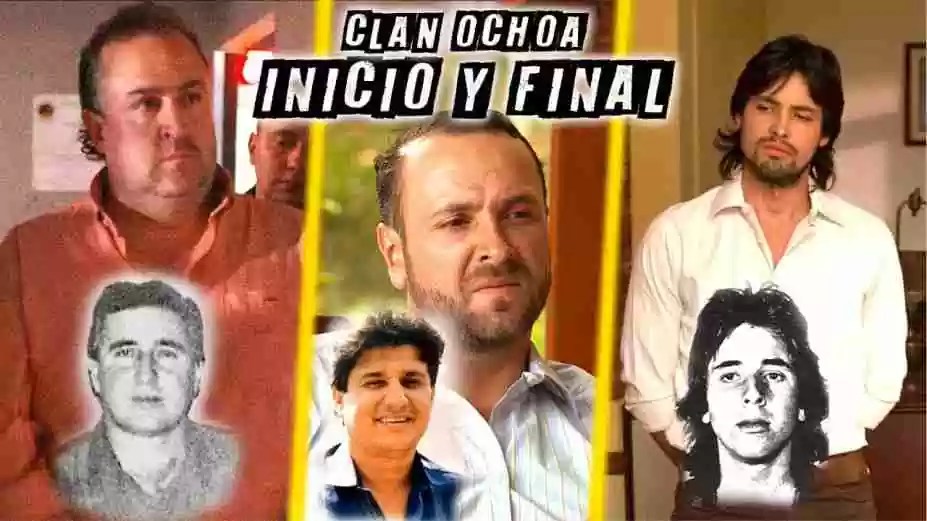Julio Motoa: The Untold Story Of Pablo Escobar's Right-Hand Man
Julio Motoa is a name that resonates with the dark history of Colombia's drug trade, particularly associated with the infamous Pablo Escobar. This article delves deep into the life of Julio Motoa, exploring his background, his pivotal role in Escobar's empire, and the lasting impact he left on both the criminal underworld and society at large.
In the late 20th century, Colombia was the epicenter of drug trafficking, a chaotic environment dominated by powerful cartels. Among these, the Medellín Cartel, led by Pablo Escobar, became notorious for its vast influence and violent tactics. Julio Motoa emerged as one of Escobar's most trusted associates, navigating the perilous world of drug smuggling with cunning and strategy.
This article aims to provide an in-depth look into Julio Motoa's life, his relationship with Escobar, and the broader implications of their actions. We will also discuss how their legacy continues to influence contemporary views on crime and justice in Colombia and beyond.
Table of Contents
- Biography of Julio Motoa
- Early Life of Julio Motoa
- Rise to Power in the Medellín Cartel
- Relationship with Pablo Escobar
- Criminal Activities and Operations
- Arrest and Imprisonment
- Legacy of Julio Motoa
- Conclusion
Biography of Julio Motoa
Julio Motoa, born in the heart of Colombia, rose from humble beginnings to become one of the key figures in the drug trade. His life story is intertwined with the rise and fall of Pablo Escobar, shaping the course of Colombian history in the late 20th century.
| Personal Data | Details |
|---|---|
| Name | Julio Motoa |
| Date of Birth | Unknown |
| Nationality | Colombian |
| Occupation | Drug Trafficker |
| Affiliation | Medellín Cartel |
Early Life of Julio Motoa
Julio Motoa was born into a modest family in Colombia, a country rife with socio-economic challenges. Growing up in a volatile environment, he became acquainted with crime at an early age. His formative years were shaped by the harsh realities of poverty and violence, which ultimately influenced his decisions later in life.
Motoa's early experiences taught him the importance of loyalty and survival, traits that would serve him well in the ruthless world of drug trafficking. As he matured, he began to associate with individuals involved in illicit activities, which led him down a path of crime.
Rise to Power in the Medellín Cartel
Julio Motoa's ascent within the Medellín Cartel was marked by his strategic thinking and his ability to navigate complex criminal operations. He quickly gained the trust of Pablo Escobar, who recognized Motoa's potential as a key player in the cartel's operations.
His rise can be attributed to several factors:
- Strong connections within the local community.
- Ability to manage logistics for drug shipments.
- Expertise in evading law enforcement.
- Loyalty to Escobar and the cartel’s members.
Relationship with Pablo Escobar
The relationship between Julio Motoa and Pablo Escobar was one of mutual respect and reliance. Motoa served as Escobar's right-hand man, often acting as a mediator between the various factions within the cartel.
Escobar valued Motoa for his discretion and ability to handle sensitive operations. This bond, however, was not without its challenges, as the pressures of their criminal lifestyle often led to intense conflicts and moral dilemmas.
Criminal Activities and Operations
Under the guidance of Pablo Escobar, Julio Motoa became deeply involved in various criminal enterprises. The Medellín Cartel was known for its large-scale cocaine production and distribution, and Motoa played a significant role in these operations.
Key activities included:
- Coordinating drug shipments to the United States.
- Managing finances and laundering money.
- Establishing connections with other drug traffickers.
- Engaging in violent confrontations with rival cartels.
Arrest and Imprisonment
As law enforcement intensified its efforts to dismantle the Medellín Cartel, Julio Motoa found himself in increasingly precarious situations. His eventual arrest marked a significant turning point in his life and the operations of the cartel.
After a series of high-profile raids, Motoa was apprehended and faced numerous charges related to drug trafficking, money laundering, and organized crime. His imprisonment ultimately led to the decline of the Medellín Cartel and the fracturing of its operations.
Legacy of Julio Motoa
The legacy of Julio Motoa is one that reflects the complexities of the drug trade in Colombia. While he is often remembered as a notorious figure, it's essential to consider the socio-political context that shaped his actions.
Motoa's life serves as a cautionary tale about the consequences of crime and the impact of drug trafficking on society. His story is a reminder of the need for comprehensive approaches to addressing the challenges posed by illegal drug trade.
Conclusion
In conclusion, Julio Motoa's life is a fascinating yet tragic narrative intertwined with Pablo Escobar and the Medellín Cartel. His rise to power, relationship with Escobar, and subsequent downfall offer valuable lessons about loyalty, crime, and the socio-economic factors that drive individuals into the underworld.
We invite readers to reflect on the broader implications of Motoa's story and share their thoughts in the comments section. Additionally, consider exploring other articles related to the impact of drug trafficking on society.
Thank you for reading! We hope to see you back for more insightful articles in the future.
Article Recommendations
- Linus Tech Tips Age Unveiling The Journey Of A Tech Icon
- David Richard Stewart Now A Comprehensive Look At His Life And Career
- Donny Osmond Net Worth An Indepth Look At His Wealth And Career

:quality(75)/cloudfront-us-east-1.images.arcpublishing.com/elcomercio/SY4FQUPJNRCU7OFGYYYEXH66WA.jpg)
